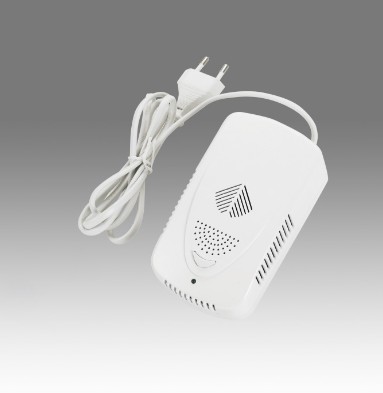A gas alarm, also known as a gas detector or gas sensor […]
A gas alarm, also known as a gas detector or gas sensor, is a device designed to detect the presence of gases in the air and provide an audible or visual alert when certain gas concentrations reach potentially hazardous levels. Gas alarms are commonly used in residential, commercial, and industrial settings to ensure safety and prevent the risks associated with gas leaks or buildup.
Gas alarms are available for detecting various gases, including but not limited to:
Carbon Monoxide (CO): CO is a colorless, odorless, and highly toxic gas produced by incomplete combustion of fuels such as natural gas, propane, oil, or wood. Carbon monoxide alarms are crucial in homes and buildings with fuel-burning appliances to detect leaks and prevent carbon monoxide poisoning.
Methane (CH4): Methane is a flammable and potentially explosive gas commonly found in natural gas pipelines, coal mines, and other industrial applications. Methane gas alarms are used to detect leaks and prevent the buildup of explosive concentrations.

Oxygen (O2) Depletion: Oxygen depletion alarms are used in confined spaces, laboratories, or areas where oxygen levels can drop below safe levels. These alarms detect low oxygen levels that may pose a risk to human health or support combustion.
Hydrogen Sulfide (H2S): Hydrogen sulfide is a highly toxic gas with a strong odor of rotten eggs. It is commonly found in certain industrial processes, sewers, and natural gas. H2S gas alarms are used to monitor and detect potentially dangerous concentrations of hydrogen sulfide.
Gas alarms typically consist of a sensor or sensors that detect specific gases, an alarm system (audible and/or visual), and sometimes a control panel for monitoring multiple sensors or integrating with other safety systems. The alarms may be battery-powered or connected to the electrical grid, and some models may offer additional features such as digital displays, data logging, or integration with smart home systems.
It's important to install gas alarms according to the manufacturer's instructions and regularly test and maintain them to ensure proper functionality. Gas alarms are not a substitute for addressing the root cause of gas leaks or conducting regular maintenance of gas systems and appliances. If a gas alarm is triggered or you suspect a gas leak, it is essential to evacuate the premises, contact the appropriate authorities, and follow proper safety procedures.